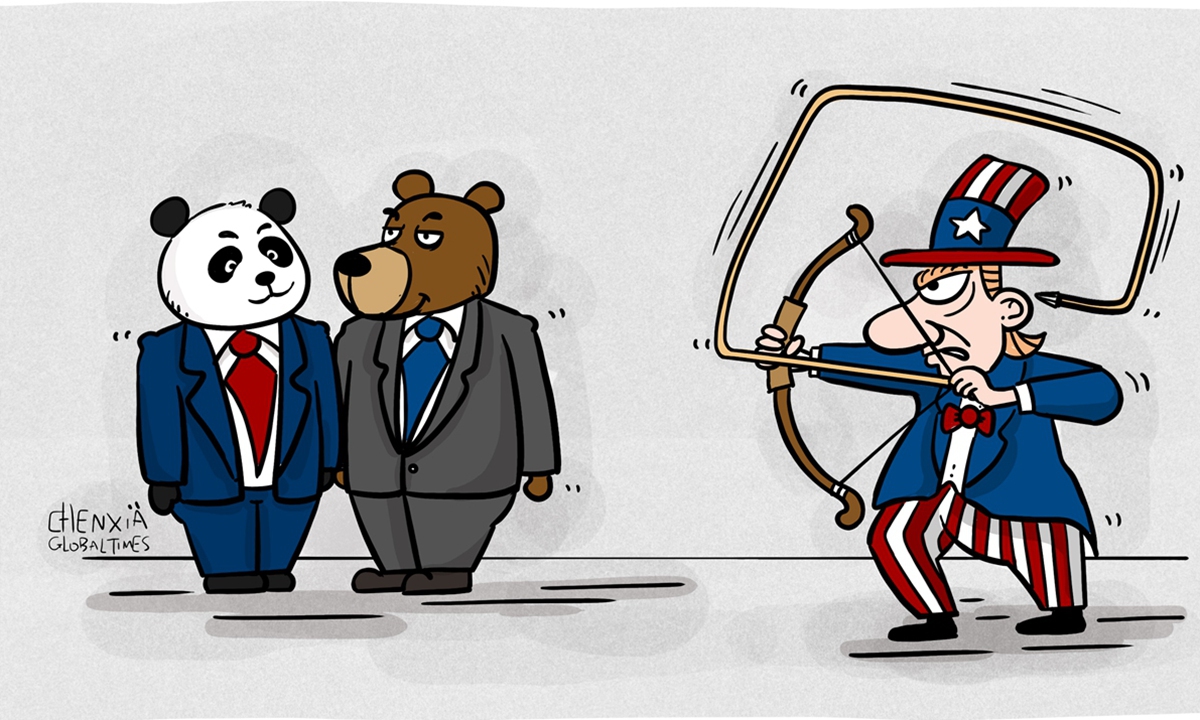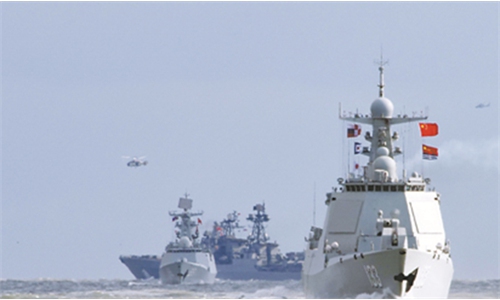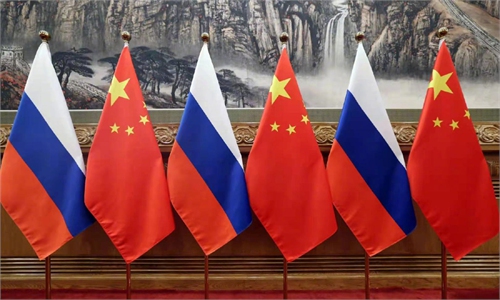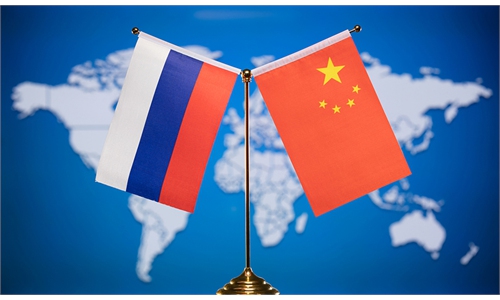
Illustration: Chen Xia/GT
Following the virtual meeting between Chinese President Xi Jinping and Russian President Vladimir Putin on Friday, Washington repeated its threadbare concern over closeness of China-Russia relationship. According to CNN, a US State Department spokesperson said that "those that side with Moscow in this unjust war will inevitably find themselves on the wrong side of history," besides "monitoring Beijing's activity closely."
The China-Russia relationship is a partnership, not an alliance. The two countries have little interest in the Cold War mentality of being either friend or foe in terms of international relations. China's neutral stance on the ongoing Russia-Ukraine conflict has also not changed.
China-Russia relationship has been increasingly hyped and misportrayed by Western and US politicians and media outlets as an "alliance", notably in the aftermath of the outbreak of the Ukraine crisis. They are attempting to stir up public opinion, in a bid to isolate China and Russia in the international community.
Even before the Russia-Ukraine conflict, Washington had been wary of close ties between Beijing and Moscow. As the US has classified the two countries as its main competitors, or even potential foes, Washington is worried that the deepening cooperation between China and Russia will impact its global leadership and hegemony, and affect its containment effect against the two countries.
Some observers have analyzed that against the backdrop of the Ukraine crisis, Washington's "concern" over closer ties between China and Russia has become more acute. The US worries that mounting China-Russia cooperation in areas covering the economy and trade will significantly reduce the effect of sanctions imposed by the US and the West on Russia, Yang Jin, an associate research fellow at the Institute of Russian, Eastern European and Central Asian Studies at the Chinese Academy of Social Sciences, told the Global Times.
In addition, the Ukraine crisis has been protracted out for ten months and Washington is seeking to exploit Ukraine as a pawn to impair Moscow, preferably reducing Russia to a second- or third-rate country. If China and Russia at this time ramp up their security and military ties, the US' such strategic intention is likely to fail, making the United States increasingly anxious.
"A thief crying 'stop the thief'" and seeking for "scapegoats" are consistent tactics used by the US. The root cause of the Russia-Ukraine conflict lies in that the US-led NATO has built an unjust and unreasonable security structure in Europe - NATO's eastward expansion has squeezed Russia to lose its due dignity and interests in Europe.
Yet the US intends to whitewash the deep-seated contradictions, and irresponsibly pass the buck to Russia and today even wants to shift parts of its responsibility to China. This is typical of the politics played in Washington.
The US has the most allies across the world. And for serving various strategic ends, Washington has established more and more small cliques, with an evident mindset of zero-sum game. Meanwhile, Washington is reluctant to see the normal development of China-Russia relations and legitimate cooperation between the two countries. The US' "double standards" practice has been once vividly embodied.
China has pursued a major-country relationship that features peaceful coexistence, overall stability and balanced development. It is impossible for Washington to kidnap the flexibility of China's major-country diplomacy. It is absurd for Washington to regard China's improving ties with the US as compliance with international rules, but label its relationship with Russia as being "on the wrong side of history."
It is not up to the US to point fingers at China and lecture on how to deal with its relations with Russia. Compared with the US' alliance system, the China-Russia relationship, which is based on non-alliance, non-confrontation and non-targeting of any third party, not only conforms to the interests of both sides, but also can be more conductive in addressing global challenges. The solid bilateral ties between China and Russia can help the world advance toward multipolarity, and prevent the international community from slipping into unilateralism.
The author is a reporter with the Global Times. opinion@globaltimes.com.cn.



